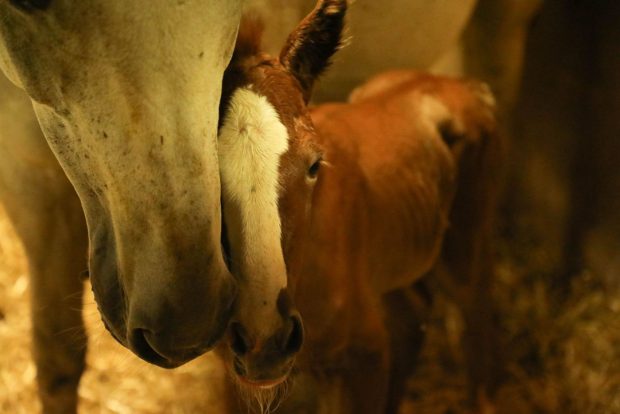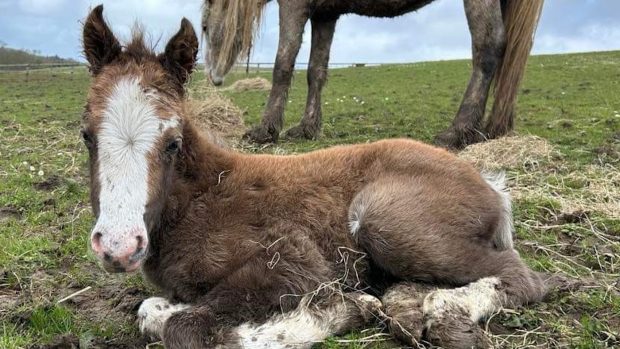Most breeders hope they will never have to cope with an orphaned foal, but knowing how to deal with this tragic situation is important in case it does arise. Finding a foster mare is the ideal solution but this can be difficult and a commercial mare’s milk replacer will be necessary, if only for an interim period.
Colostrum, the first milk from the dam, is vital for the foal because the antibodies it contains kick-start the offspring’s immune system. The foal must receive colostrum within the first 12-36 hours of life or it will, at best, become weak and sickly or, at worst, die.
It is important that every breeder has access to colostrum in case of an emergency. This can be in a frozen form, in which case it will need to be thawed at room temp or in warm water. Do not microwave it as the heat will destroy the antibodies. If the mare dies during foaling, the colostrum should be milked from her and given to the foal.
The digestive system of young foals is not designed to cope with solid food, so milk must be provided either from a foster mare, or a commercial milk replacer. During the first week of life, a foal can suckle up to 17 times an hour, decreasing to about three times an hour after this.
Very young foals may need to be bottle-fed initially, but it is better for the foal if it is introduced to the bucket as soon as possible. Some commercial milk replacers, including Buckeye Mare’s Milk Plus, can be mixed with tap water in a bucket (warmed if necessary to encourage consumption), allowing the foal to drink as often as it would from the mare.
When made up Buckeye Mare’s Milk Plus is slightly acidic with a slightly tart taste to discourage over-consumption and reduce the risk of growth problems developing, as well as providing the digestive tract with the correct pH for colonisation and proliferation of beneficial gut microflora.
Choosing your commercial milk replacer carefully can drastically reduce the time spent feeding the orphan, and decrease the chance of behavioural problems later on.
Introducing concentrates
Once the foal is drinking all of the milk between feeding times, a handful of a creep feed, which will provide a balanced source of nutrients, can be put in the empty milk bucket. If the feed has not been eaten before the next feeding time, it should be discarded.
Once the foal has learned to eat the creep feed, it should be provided in a separate hanging bucket so that the foal has free access to this as well as the milk replacer. From six weeks of age the amount of milk replacer can be reduced as the creep feed is increased. Sprinkling dry milk replacer powder on the creep feed should encourage reluctant or fussy foals.
Foals should always have access to forage or grass, as although they will not be able to digest it initially, it is important to encourage this natural behaviour and stimulate the growth of fibre-digesting bacteria.
At three months of age the foal’s digestive tract begins to change from being totally dependent on milk to being able to digest forage and grain more efficiently and a stud ration can be introduced. The feed that is most appropriate will be determined by the foal’s condition. A stud mix or cube can be used for foals that are underweight, whereas a specially formulated balancer is suitable for foals who are doing well.
|
Buckeye Mare’s Milk Plus
|




